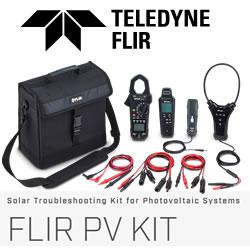NREL's Advanced Atomic Layer Deposition Enables Lithium-Ion Battery Technology
Agreement with Forge Nano helps fundamentally enhance lithium-ion battery safety, durability, and lifetime
The U.S. Department of Energys National Renewable Energy Laboratory (NREL) has entered into an exclusive license agreement with Forge Nano to commercialize NRELs patented battery materials and systems capable of operating safely in high-stress environments. A particular feature of the technology is the encapsulation of materials with solid electrolyte coatings that can be designed to meet the increasingly demanding needs of any battery application.
These lithium-ion batteries feature a hybrid solid-liquid electrolyte system, in which the electrodes are coated with a solid electrolyte layer. This layer minimizes the potential for the formation of an internal short circuit between electrodes to prevent "thermal runaway," or the uncontrolled increase in battery cell temperature that can result in a fire or an explosion.
In addition, coating of the electrode materials reduces the stress on traditional polymer separators that are currently necessary components in commercial lithium-ion batteries and can allow for thinner separators designed for higher power devices. This advancement has the potential to reduce both the cost and weight of the battery device, while substantially increasing safety and lifetime.
Lab-scale testing of NRELs hybrid solid-liquid electrolyte system has shown increased electrode durability and reliability without compromised electrochemical performance. "The cells are less likely to fail, even in demanding, real-world conditions like high temperatures and fast recycle rates," said Ahmad Pesaran, whose team of engineers in NRELs Energy Storage group invented the technology.
Forge Nano, formerly PneumatiCoat Technologies, is a Colorado-based company specializing in the scale-up and manufacturing of cost-effective Atomic Layer Deposition (ALD) encapsulated materials. Forge Nano presented its technology at the 2013 and 2017 NREL Industry Growth Forum, the nations premier clean energy investment event. A year later, NREL approached the company as a potential licensee after conducting a licensee search in the battery technology area.
"This license agreement will allow Forge Nano to offer further customized lithium-ion battery materials for high performance devices by utilizing our patented high-throughput ALD system that has already been successfully tested at the pilot scale and in large format pouch cells," Paul Lichty, CEO of Forge Nano, said. "The incorporation of this technology into Forge Nanos offering will lead to a substantial reduction in cost per unit energy of lithium-ion batteries."
NREL has more than 800 technologies available for licensing. Companies interested in partnering to advance research on or commercialize renewable energy technologies can visit the EERE Energy Innovation Portal, which features descriptions of all renewable energy technologies funded by the Department of Energys Office of Energy Efficiency and Renewable Energy.
NREL is the U.S. Department of Energy's primary national laboratory for renewable energy and energy efficiency research and development. NREL is operated for the Energy Department by The Alliance for Sustainable Energy, LLC.
Featured Product

